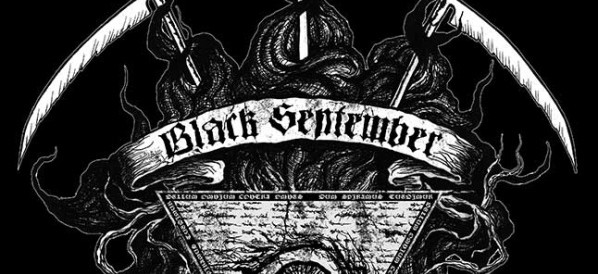 1 Terms
1 TermsHome > Terms > English (EN) > guns
guns
In the early twenty-first century one-third of American homes have guns (pistols, revolvers, shotguns or rifles), representing approximately 200 million firearms. In the late 1990s, the number of deaths from bullets declined, but still averaged eighty-seven deaths per day in America.
Firearms were introduced to America by the first European explorers, traders and settlers to hunt and fight. Most colonial towns required able-bodied males to own a musket and train with the local militia. Their skill and prudent use of guns to hunt, protect the family and town, and project the community’s power affected men’s social and political prestige; this attitude is still held by many Americans. After the Revolution, Americans, surrounded by monarchies and wary of despots who might rise from among their own ranks, guaranteed the personal ownership of guns to allow the people to retain control of their new Republic. The 2nd Amendment to the Constitution (see Bill of Rights) became the backbone of gun-rights legislation for two centuries.
In the nineteenth century the western frontier required continued gun ownership and skills until each area became settled. Post-emancipation blacks used firearms to protect their families, and rural Americans continued to hunt with firearms. As industrialization and urbanization progressed, the new city dwellers had less need for guns. A small percentage of men and women owned them for protection, crime, sports and collecting.
By the end of the twentieth century 80 percent of the American population lived in cities.
At the same time, Americans’ spectrum of attitudes towards guns became a divisive force as a strong movement grew to limit, if not eliminate, the private ownership of firearms. It was fueled by an increase in the misuse of guns, especially by younger Americans, the use of more deadly 9mm handguns, children caught in the crossfires of inner-city drug wars, the crippling of President Reagan’s Press Secretary James Brady and school massacres. Lobbyists, like Handgun Control, fought for more laws to restrict the number of privately owned guns through registration and prohibition. By the end of the century they were successful in passing federal laws to eliminate the sale of many military-style rifles and to require a check and waiting period for would-be handgun owners. Some cities and states enacted more restrictive gun laws or even sued gun manufacturers. Other groups sought to diminish gun violence in the media.
The opposition, generally led by the National Rifle Association, sometimes joined by the American Civil Liberties Union, has been powerful. Stressing personal defense, sports and the 2nd Amendment, they have fought many successful legal actions on local, state and federal levels. While many people oppose further gun regulation because they see it as a first step in the government confiscation of all firearms, they have pushed for tougher legal prosecution and sentences for people who use guns in crimes.
- Part of Speech: noun
- Synonym(s):
- Blossary:
- Industry/Domain: Culture
- Category: American culture
- Company: Routledge
- Product:
- Acronym-Abbreviation:
Other Languages:
Member comments
Terms in the News
Billy Morgan
Sports; Snowboarding
The British snowboarder Billy Morgan has landed the sport’s first ever 1800 quadruple cork. The rider, who represented Great Britain in the 2014 Winter Olympics in Sochi, was in Livigno, Italy, when he achieved the man-oeuvre. It involves flipping four times, while body also spins with five complete rotations on a sideways or downward-facing axis. The trick ...
Marzieh Afkham
Broadcasting & receiving; News
Marzieh Afkham, who is the country’s first foreign ministry spokeswoman, will head a mission in east Asia, the state news agency reported. It is not clear to which country she will be posted as her appointment has yet to be announced officially. Afkham will only be the second female ambassador Iran has had. Under the last shah’s rule, Mehrangiz Dolatshahi, a ...
Weekly Packet
Language; Online services; Slang; Internet
Weekly Packet or "Paquete Semanal" as it is known in Cuba is a term used by Cubans to describe the information that is gathered from the internet outside of Cuba and saved onto hard drives to be transported into Cuba itself. Weekly Packets are then sold to Cuban's without internet access, allowing them to obtain information just days - and sometimes hours - after it ...
Asian Infrastructure Investment Bank (AIIB)
Banking; Investment banking
The Asian Infrastructure Investment Bank (AIIB) is an international financial institution established to address the need in Asia for infrastructure development. According to the Asian Development Bank, Asia needs $800 billion each year for roads, ports, power plants or other infrastructure projects before 2020. Originally proposed by China in 2013, a signing ...
Spartan
Online services; Internet
Spartan is the codename given to the new Microsoft Windows 10 browser that will replace Microsoft Windows Internet Explorer. The new browser will be built from the ground up and disregard any code from the IE platform. It has a new rendering engine that is built to be compatible with how the web is written today. The name Spartan is named after the ...
Featured Terms
black september
1.It is about the conflict and fight between King Hussein of Jordanand and Palestinian guerrilla organizations in 1970 and 1971. The PLO is expulsed ...
Contributor
Featured blossaries
Browers Terms By Category
- Electricity(962)
- Gas(53)
- Sewage(2)
Utilities(1017) Terms
- Conferences(3667)
- Event planning(177)
- Exhibition(1)
Convention(3845) Terms
- Skin care(179)
- Cosmetic surgery(114)
- Hair style(61)
- Breast implant(58)
- Cosmetic products(5)
Beauty(417) Terms
- Gardening(1753)
- Outdoor decorations(23)
- Patio & lawn(6)
- Gardening devices(6)
- BBQ(1)
- Gardening supplies(1)
Garden(1790) Terms
- Wireless networking(199)
- Modems(93)
- Firewall & VPN(91)
- Networking storage(39)
- Routers(3)
- Network switches(2)





